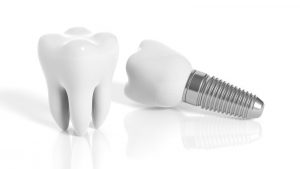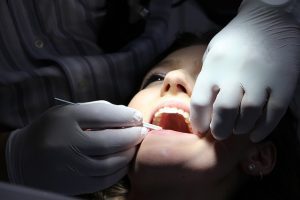When a wisdom tooth doesn’t fully erupt through the gums, it is called an “impacted” tooth.
An impacted tooth is usually unable to fully enter because there isn’t enough room in your mouth. It can cause a range of problems, some serious, including:
- Difficulty brushing, which can lead to tooth decay and infection. Partially impacted wisdom teeth are often tricky to brush, making them more vulnerable to decay. When you ignore wisdom tooth pain, your chance of developing cavities increases.
- A bacterial infection can develop, which causes inflammation and swelling of the gums. If left untreated, the infection must be treated with antibiotics. In severe cases, oral surgery to remove the gum flap may be required. Infections can become systemic and affect the heart, kidneys and other organs when bacteria travel from the mouth into the bloodstream.
- Damage to neighboring teeth. Pain from a wisdom tooth can be a sign that it is coming in at an angle. (delete this – When this happens, it crowds out surrounding teeth, causing them to get out of alignment. Not only can this do permanent damage to the affected teeth; it can change the alignment of your bite.)
- A wisdom tooth that stays in the gum can cause a cyst. When the cyst isn’t addressed, it can lead to a hollowing of the jaw and/or nerve damage. A cyst can also make it difficult to eat, drink, and swallow.
Wisdom tooth extractions are recommended if any of these problems are present or likely to develop.
Warning Signs
These issues are warning signs that you might have an impacted tooth:
- Pain in the back of your mouth
- A tooth poking through the gum
- Redness, inflammation or tenderness around the tooth
- Bad breath, which can be a sign of infection
If you are experiencing any of these problems, see your dentist right away. He or she may recommend you have the wisdom tooth or teeth removed by an oral surgeon.
Extraction of Wisdom Teeth
Some people do not have wisdom teeth, but most others need to have one or more wisdom teeth removed in their late teens. Through evolution and a change in the human diet, our mouths just aren’t large enough any more to fit all the wisdom teeth. Having wisdom teeth extracted is a “wise” choice if you are experiencing any of the problems listed above. The recovery is usually less than a week, and further problems are rare.
The first step to getting your wisdom teeth out is a consultation visit with your oral surgeon. During this visit, the surgeon will:
- Review your current health conditions and medications
- Assess the placement and health of your wisdom teeth
- Review the extraction process
- Discuss best anesthesia options
- Go over post-operative care
- Answer your questions or concerns
The removal of wisdom teeth is a very common procedure for any oral surgeon, and few people experience complications if they follow post-op instructions carefully.
If you use Wilmington Oral Surgery and do experience difficulties during recovery, we are available around the clock in emergency situations to address any issues you have.










